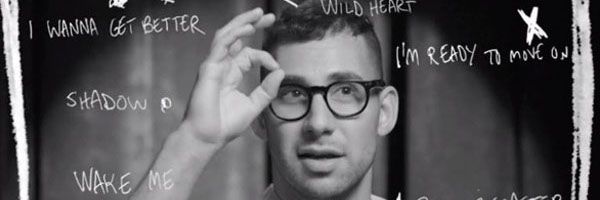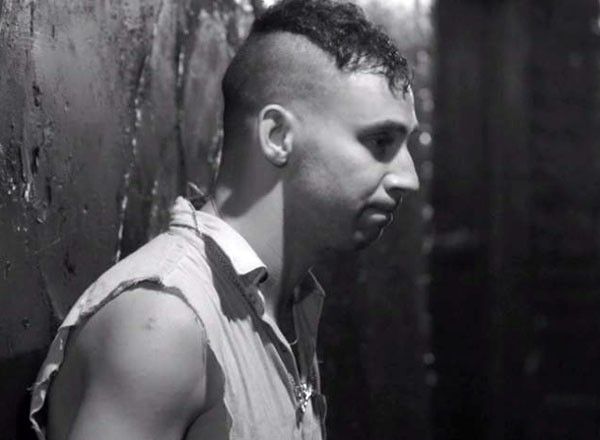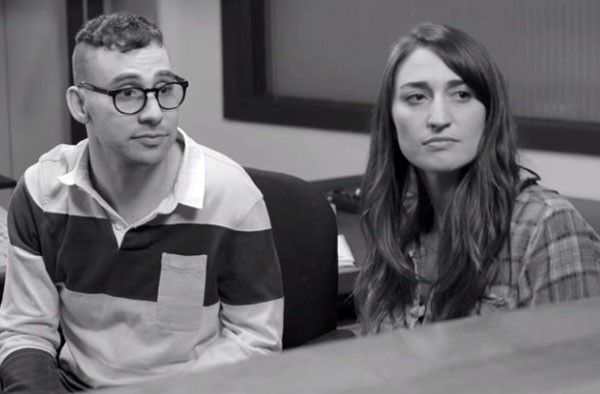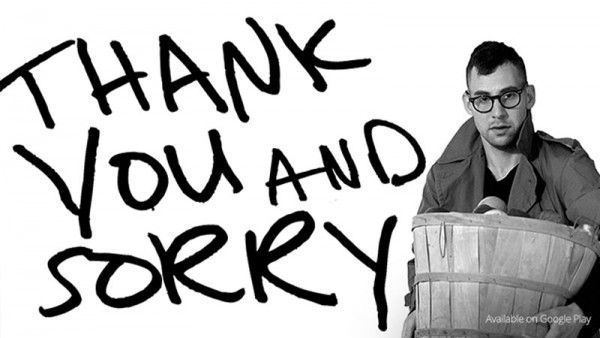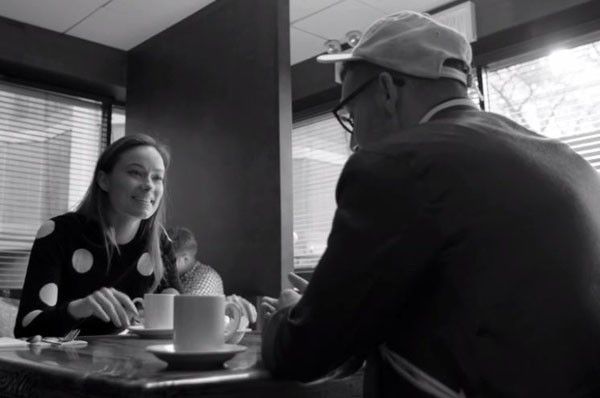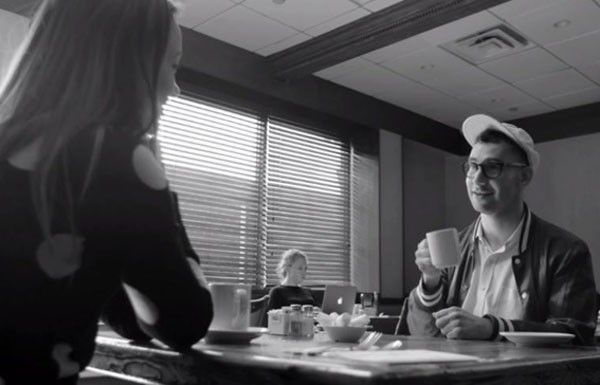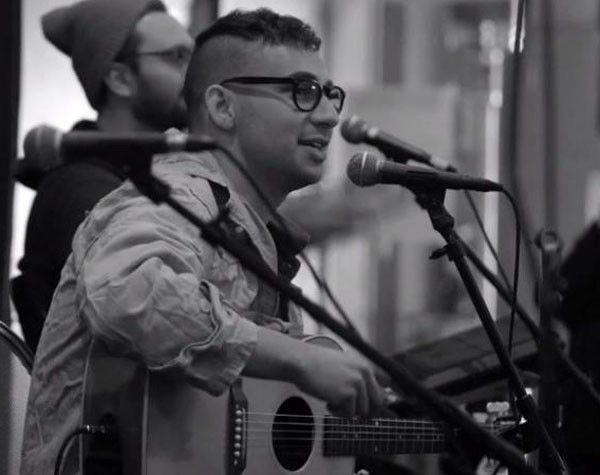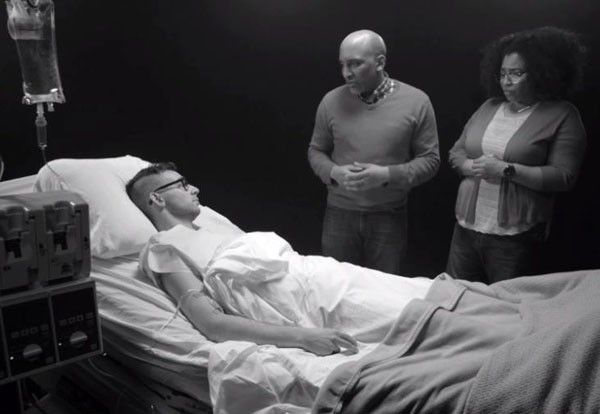The original and highly entertaining new six-part docu-series Thank You and Sorry (available exclusively and free on Google Play) follows Grammy award-winning musician Jack Antonoff, as he navigates the bizarre world of touring and life on the road, and how it can make you feel so disconnected from your family and loved ones. The episodes are beautifully shot in black and white and combine real footage from the recent Bleachers tour alongside twisted scripted moments, all while giving some very human insight into who Antonoff is.
During this exclusive phone interview with Collider, Bleachers frontman Jack Antonoff talked about why he’s always wanted to do something like this, what made Google Play the right home, the shockingly small amount of planning for the episodes, what shooting in black and white added, why he’s both so thankful and sorry, what makes Bleachers different from other bands he’s been a part of, the song he’s most proud of, and his upcoming tour with Charli XCX.
Collider: First of all, I really enjoyed Thank You and Sorry. I thought the whole thing was totally entertaining and funny.
JACK ANTONOFF: Well, thanks. It was really bizarre and funny and entertaining to make.
How did this come about? Had you been thinking of doing something like this, or was the idea brought to you?
ANTONOFF: I’ve always wanted to do that. I love music documentaries so much, and being on tour and writing music and making music is so bizarre. It’s constantly blurring the line of what’s real and what’s not. You’re talking about the most intense parts of you and you’re sharing that, and you’re doing it over and over again. It’s a constant, weird crossing of lines, reality and performance. So, I wanted to do something that was more than a documentary, and spoke to those blurry lines.
What made Google Play the right home for this?
ANTONOFF: We had the idea first. It was something we were going to do, no matter what. So then, we took it out to find a partner, and Google Play was just really into it and very excited, and had all these great ideas about how people could get it and watch it for free. It checked all my boxes, which was what I wanted. I wanted it to be available. I didn’t want it to be in some weird space that’s hard to find and no one could see it without paying too much for it. I just wanted it to be accessible.
Because they feel like they have their own feeling and theme to them, how much planning went into each episode, or was it all just accidental luck that it feels that way?
ANTONOFF: There was a shockingly small amount of planning. We just went for it. We shot the whole thing in about a week on tour. It was pretty quick. I think there’s a specific feeling for each episode because we were literally in a different city, every day. And then, each episode also has a different song in it, and they all tie in with all these different sides of me that I’m speaking about in the songs. All the joy, all the tragedy, the anxiety and the depression is mixed with the excitement of making music and being alive and the attempt to connect that needs to exist in all of these places. We piece that together with different songs in different episodes that speak to specific parts. And that’s where the specific elements came in. Even though those moments were scripted, those were the most intense or real things because they come from inside. I have issues with germs, so I wanted to put that out there. I have all of these issues with being away and with becoming too complicated and not being there for the ones I love, and have my girlfriend leave me because of that. So, when I say scripted, I mean that we were in a set situation, but there wasn’t much actually scripted. It was just a really intense expression of what I’m really concerned about, which is not being present for people and becoming a piece of shit because I’m trying to make it work.
You have some very recognizable faces in this, like Lena Dunham, Rosie Perez and Olivia Wilde. Did you just ask friends to be a part of this, or were there any people you didn’t know, but wanted them to get involved because you wanted an excuse to work with them?
ANTONOFF: I don’t know Rosie Perez, but I love Rosie Perez. I love her work, and I loved the idea of her being my girlfriend. The only thing that could have been better was to have a make-out scene.
Were you the one who wanted to shoot this in black and white?
ANTONOFF: The director brought the idea to me, and I was just like, “Yes, 100%. That is so connected to what we’re doing here.” Black and white creates a strange dreamscape that color never can. A lot of the things are concept and dream related, in a way. It’s more like an odd dreamscape, and I thought that perfectly helped continue to blur the lines of what’s happening and what’s not actually happening.
I really love the title of this project. “Thank you and sorry” is such a simple phrase that covers so much. Is that something that you often find yourself saying to people, and that you used in your own life, before this?
ANTONOFF: That’s how it came about. In the first episode, I was doing an interview on camera, and something happened that made me say, “Thank you and sorry,” which is something that I say, all the time. If you’re in a conversation with me, the last thing I’ll probably say when I’m walking away is, “Thank you and sorry.” Just like I say in the series, it’s so directly how I feel. It’s yin and yang, with being so thankful and grateful, but so sorry and so anxious and so upset that I fucked something up or have been such a jerk, or whatever it is. It’s a feeling I have, and I say it all the time. I said it very naturally in the interview, and when the camera went off, the director said, “We should call the series Thank You and Sorry. That feels like what this is.” And that is what it is. It’s about this great connection through music and through the songs, and being very grateful for doing that, but also feeling so shitty and so sorry for the toll it takes on me and the people around me. I’m so unclear about how I deal with all of that, and how I push forward without becoming over-complicated. It really just came very natural.
As someone who’s been a musician for a long time, how has Bleachers been different for you, from other bands that you’ve been a part of?
ANTONOFF: Anything else I’ve ever done, it feels like something I’ve been a part of. Bleachers is the first thing that feels like it’s a part of me. There’s a difference there. Bleachers comes from a different place. It’s personal. It’s just me putting myself out there as myself. It’s very intense.
Do you have a song on Strange Desire that you’re most proud of, or that maybe was a struggle to write, but that you’re really happy with the final result?
ANTONOFF: “I Wanna Get Better” was the hardest song to write, and I was very excited to finally finish it. It was really intense. This big, anthemic, uplifting chorus, “I wanna get better” is now for everyone. Everyone wants to get better. You go through life, you want to shift and change and get better. No one ever says, “I’m better.” They say, “I wanna get better.” To give that weight and to make that matter, and to shout that in the chorus and have it mean something, I had to really get into it in the verses and talk about all the terrible things that I had been through and why I felt that it was worth it for me. The more honest that I could be, the more it was going to mean to other people, so I really wanted to outline all of the struggles in my life, the loss, depression and anxiety in three short verses. So, the song came quickly, but actually putting it together and getting all of those things right, and wanting to fit all of these stories in there, in the perfect way, just took a really long time. But, sometimes it’s like that. Sometimes it’s really quick, and sometimes it’s really long. There’s no formula for writing songs.
In these episodes, you talk about being interested in making records that mean something to you and that aren’t about an image, and also that your biggest fear in life is becoming not you. Is it challenging to find a comfortable balance between the creative side and the business side of sustaining a career in the music industry?
ANTONOFF: Yes and no. It isn’t so much for me because what I’m selling, there’s no alter-ego. The very thing that makes it so complex and so hard is the very thing that keeps it honest. If I want to write a song about the hardest moments of my life, that means that when I go and perform it every night, I can’t phone it in because, if I do, then it would destroy me, as a human being. So, to commit to being the kind of artist that’s going to say certain things, I’ve never had a moment where I’m like, “What am I selling here?” That doesn’t ever occur to me because I still have so much passion for what I’m doing, and it’s coming from such a specific place in me. But on the flipside, it’s also really intense, and it can really take a toll on me to constantly revisit these things and talk about them, every night, and put it in the songs. Our new single is about the dream state, right before you wake up, and thinking that my sister is still alive and this really intense shit. I never struggle with, “Is what I’m saying something that matters?” My struggle is, “If I keep saying this, over and over and over, is it going to chip away at me, as a human being?” I have a lot of things that I struggle with, but I don’t have a lot of struggle with, “Does this deserve to exist?”
With all of the ups and downs that come along with a career in music, what’s really kept you motivated and focused and moving forward with it?
ANTONOFF: That connection. Besides the obvious things of an actual love for music and performing and making records, the thing that really drives me is being able to say something in a song that is something that, when you say it in your head, it makes you feel so alone and distant. But when you say it and witness it through someone else’s ears and eyes, you have that connection and feel less alone in the world. In most cases, that comes with therapy. The first time I had a panic attack, I thought I was the first person on earth to have a panic attack. I was like, “You’re dying. You’re suffering from some unique disorder.” And then, you tell someone, hopefully, because a lot of people don’t tell anyone. I remember I felt ashamed, but when you do tell someone, you realize that we’re all having these experiences and that existing is actually hard for all of us. And then, all of a sudden, it’s just not as bad. It’s still challenging, but it’s not as bad. That’s all I’ve ever hoped to get from music.
You have a very interesting and funny relationship with managers in these episodes, and you hire and fire a few of them. How do you really feel about managers, and are any of your own past managers reflected in this particular managers?
ANTONOFF: Currently, and for the past couple of years, I’ve had a great manager who’s really my partner in everything I do. We have an amazing relationship. But, I’ve worked with a couple different people who were very soul-sucking. What I condensed into three episodes of hiring and firing managers is really years and years and years, and a combination of these fictional characters that represent weird parts of me, kind of like all of the Sex and the City girls adding up to Carrie. There’s nothing in there that isn’t, in some way, true. We didn’t script anything that isn’t real.
You have the “Charli and Jack Do America” tour coming up, which seems awesome because you and Charli XCX do very different things, but still somehow occupy similar space. Was part of the appeal of the tour the fact that you seem like you probably share some of the same fans, even though you seem so different musically?
ANTONOFF: I don’t ever want to do anything that’s obvious, and I also want to find ways to do things that are extremely new and exciting and can make sense in bizarre ways. I always want things to make sense in really bizarre ways.
Thank You and Sorry is now available to watch at Google Play.

